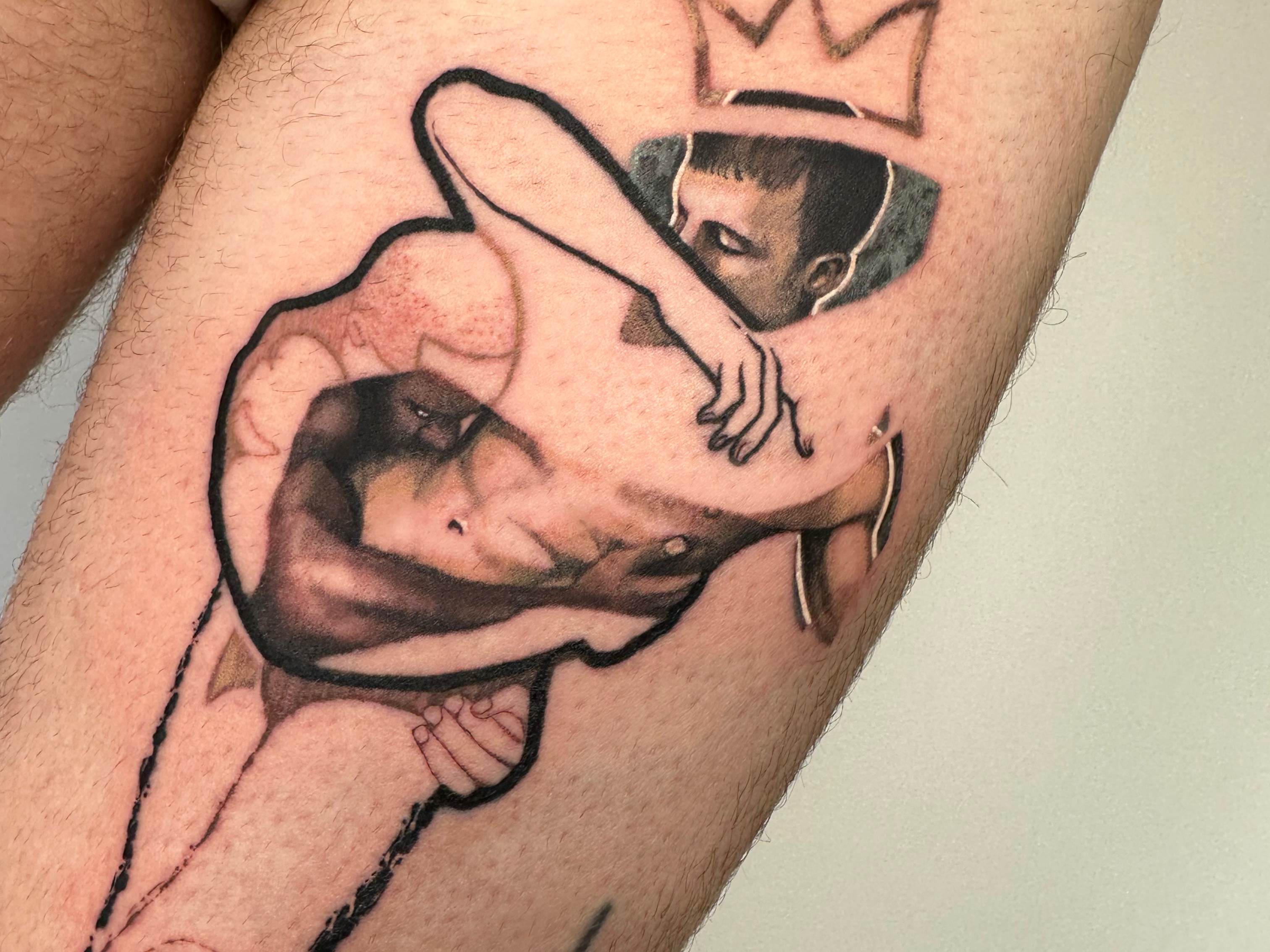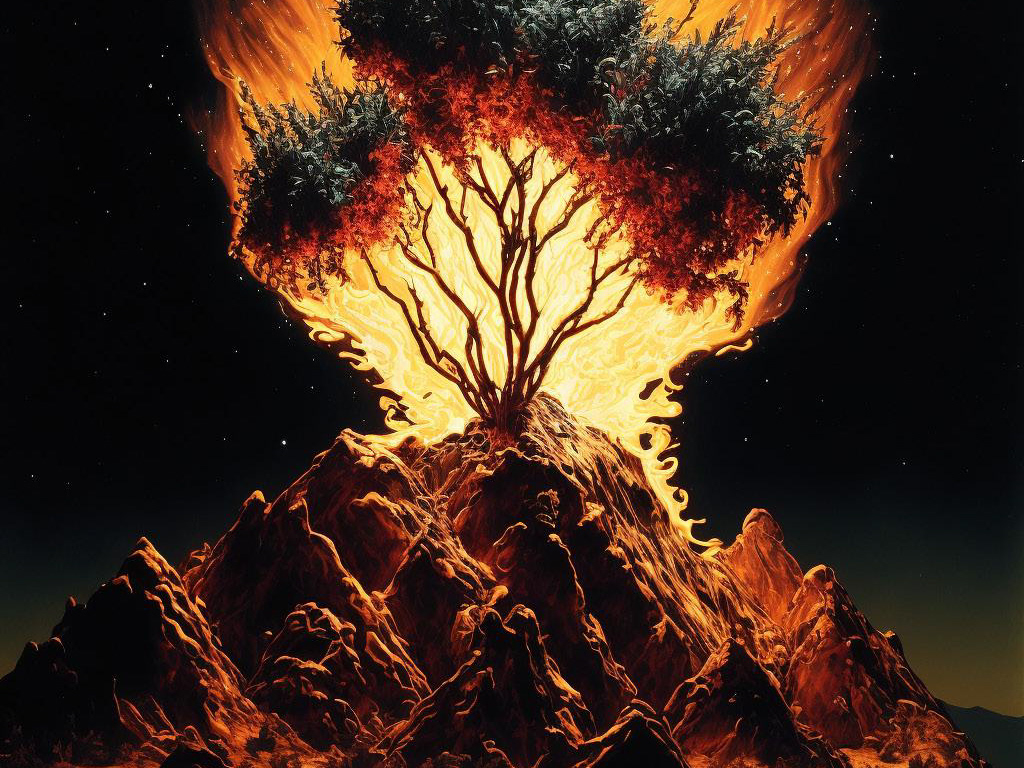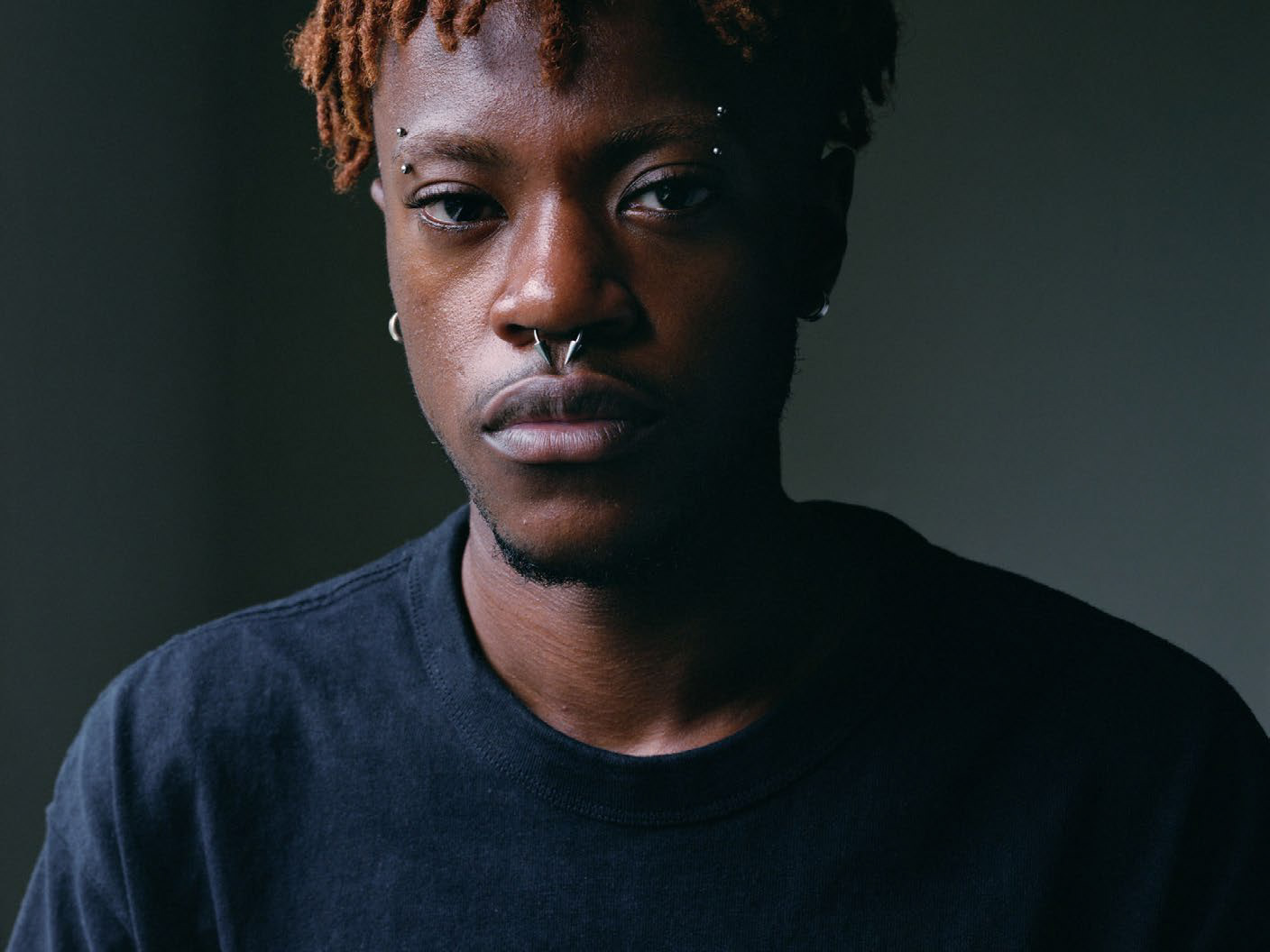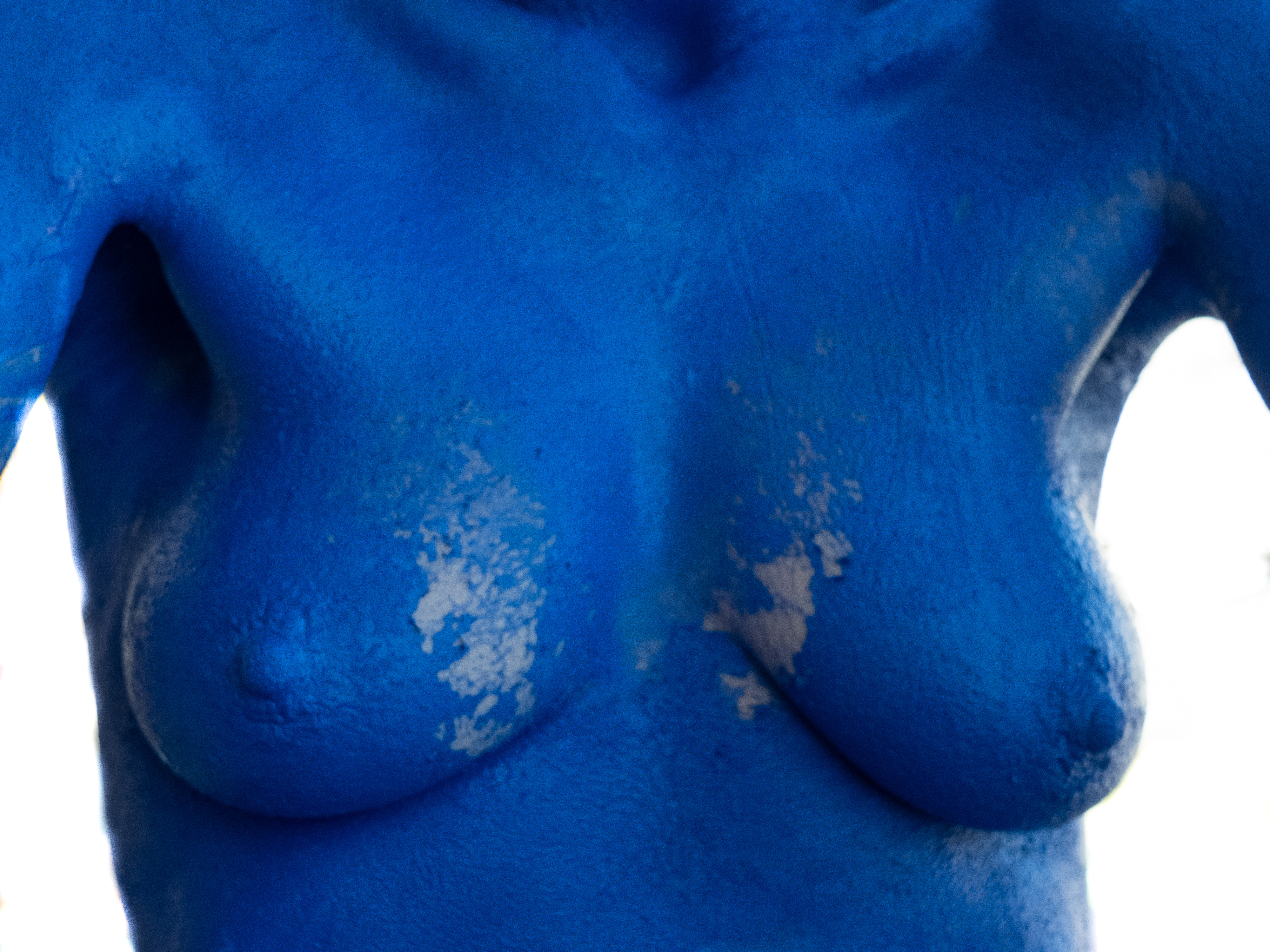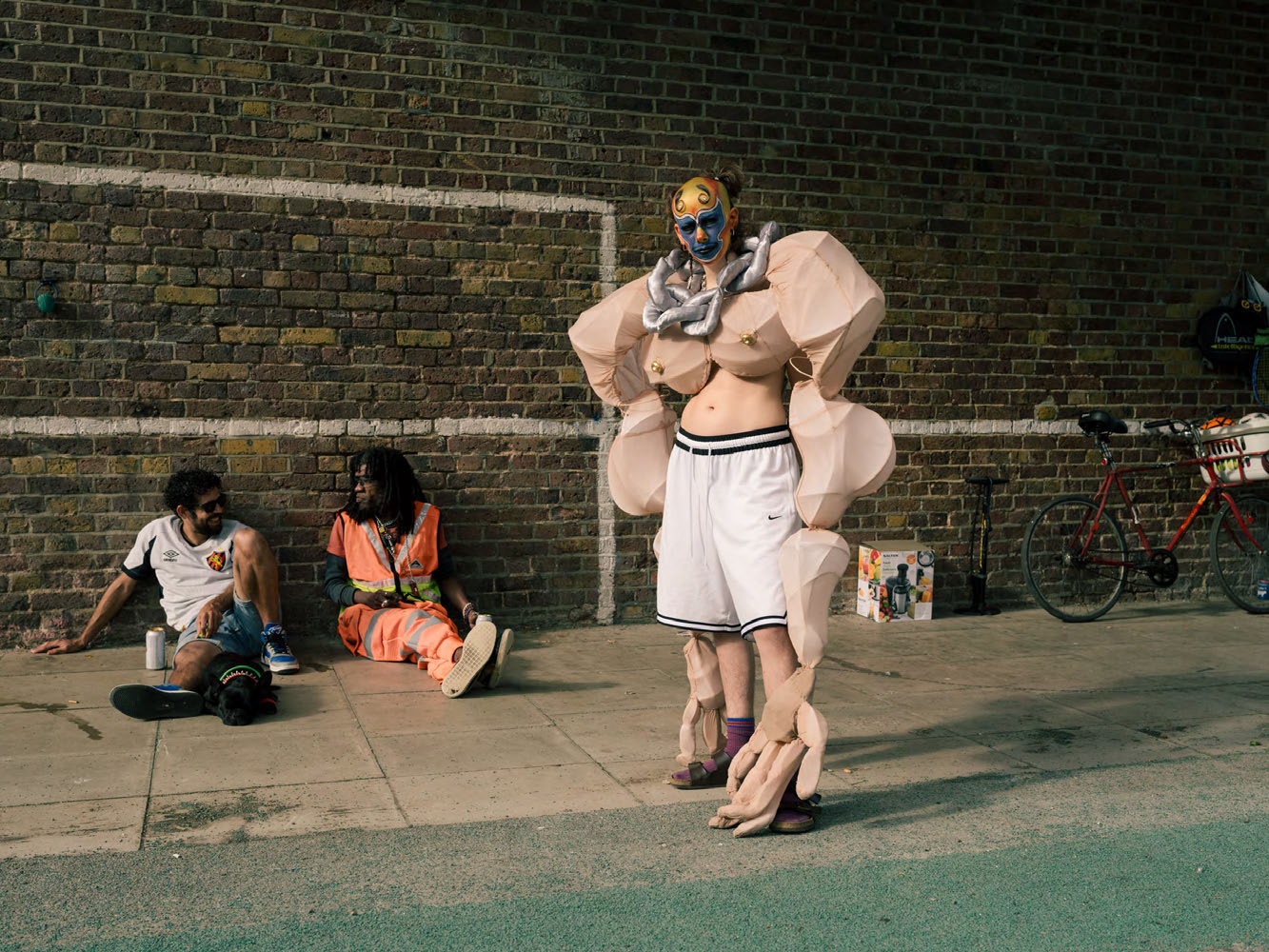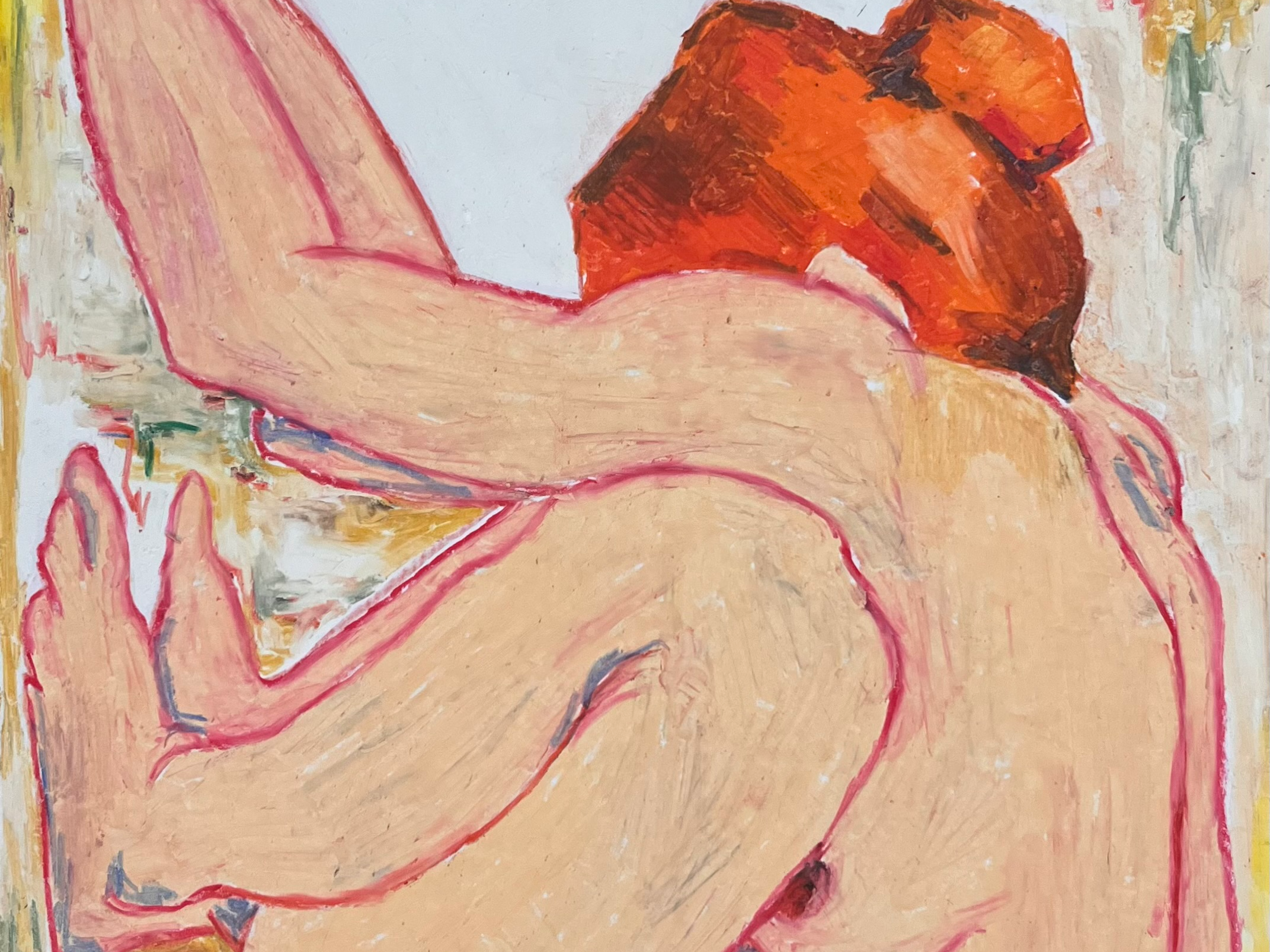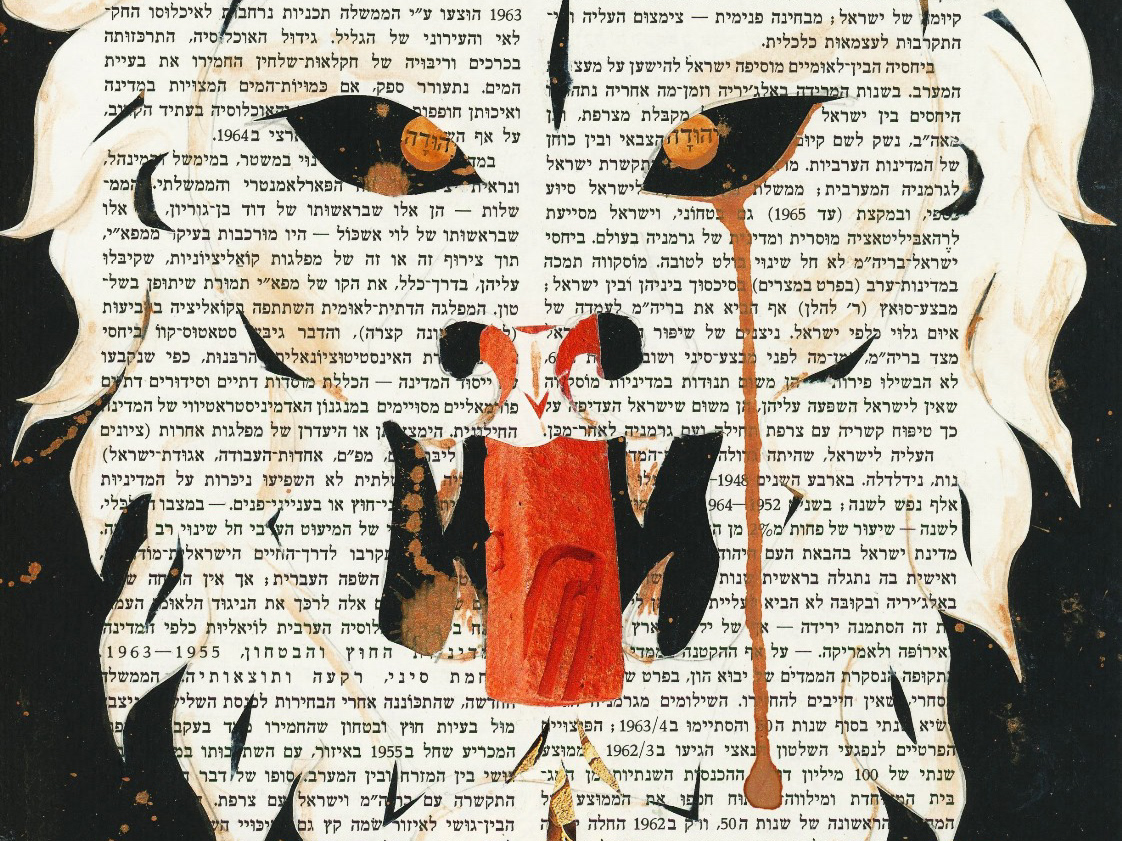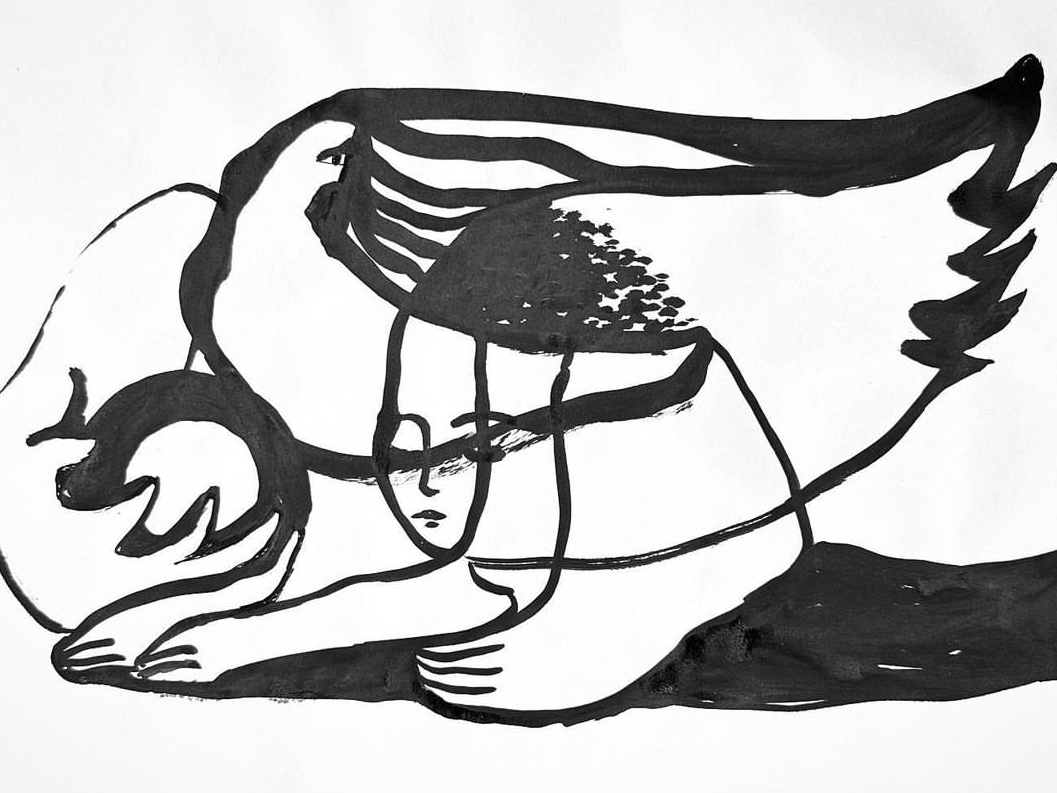The Late Blooms of Haifa : An Afternoon with Amit Eshbal
Our backdrop was a scene of tranquil contradiction: the serene laziness of an early April afternoon, punctuated by the distant, rhythmic beats of Fugees emanated from Amit’s record player. The song, "Ready or Not", from The Score, seemed more than mere background music. It was a melodic echo of Amit’s own journey of returns—to Haifa, to Hadar, and to the very essence of his roots.
Amit, currently guiding the Pyramid Art Center, is emblematic of Haifa itself—woven from threads of departure and return, his connection to the city is unyielding and multifaceted. Through his roles as an artist, consultant, and music scene veteran, Amit’s experiences mirror Haifa’s own story of transformation: a tale of diverse influences, resilience in the face of change, and an enduring commitment to artistic expression.
On that sweltering afternoon, our conversation ventured deep into Amit's relationship with Haifa, exploring the nuanced layers of a city and a career intertwined. The narrative of Haifa's art scene, as seen through Amit's eyes, is one of rebirth and continuous evolution.
Amit’s reflections offer a window into a city that stands as a beacon of creativity, innovation, and community amid the challenges of modern existence. As we delved into his insights on the seismic shifts in Haifa's cultural landscape, spurred by global events and local endeavors, a portrait of a city in the midst of rebirth emerged: dynamic, multicultural, and brimming with potential.Join us as we embark on this journey through Amit’s narrative, a story of personal and communal revival, set against the backdrop of the city that cradles him.
UNHiNGED: What interested me in interviewing you is observing from an outside perspective how drastically Haifa's scene has changed, especially over the last two to three years. What changes have you noticed?
ESHBAL: I have a very specific perspective. When I moved back to Haifa, I was looking to continue the music and theory courses I previously conducted in Tel Aviv. I spoke with Rotem from Makom Le Shira, a school for prose and poetry based in Jerusalem, which had recently started a branch in Haifa. Realising our shared goals for the arts in Haifa, we established the Haifa Forum for Arts and Culture. We engaged local cultural establishment leaders to lobby for funding from the city and government. During this time, Mayor Kalish was forming a strategic team of consultants. I applied and was accepted as a consultant to the mayor on cultural matters. This happened during Covid when many artists were moving to Haifa, countering the trend of people leaving. My goal was to establish infrastructure to mirror the support seen in Tel Aviv and Jerusalem. Unfortunately, due to political conflicts, many of my recommendations remained unimplemented. The city’s financial support for the arts is minimal, barely making an impact. The city itself faced a lot of political conflict, so most of my recommendations were just left as recommendations. I want people to make a living here respectfully. To achieve this, more budget is necessary so people can have stable jobs, not just in art projects but in museums and supported nonprofits. On the other hand, the situation in Tel Aviv and Jerusalem has become somewhat static, with ample funding leading to complacency. In Haifa, the lack of substantial funding keeps the arts scene authentic and dynamic.
UNHiNGED: There needs to be a push forward.
ESHBAL: There needs to be tension. And I always say that I think there's something very healthy about artists that have a day job. We want a balance.
UNHiNGED: You have had a huge wave of immigration recently. Alot of people who are coming from Russia and from Ukraine; are staying in Haifa. How do you think that sort of shift of talent from places like Tel Aviv has affected Haifa and the Haifa art scene?
ESHBAL: Specifically, in a very positive way. Haifa is the only place in Israel that I think is really inherently multicultural. I grew up here, being exposed to different cultures, and also during a wave of immigration from the former Soviet Union (I was born in ‘86. I got back to Israel in 1991 during the immigration wave. My parents were emissaries abroad). A few years ago while living and working around Tel Aviv, The main thing I remember is seeing people that made a living out of art. And for me in my mentality, it wasn't an option. I'm like a 10th generation educator or teacher or whatever. So I didn't even know that it's a possibility. I thought I could either become, I don’t know, as famous as Korn, Iron Maiden, or whatever, or a failure. A Fight Club mentality is what I call it in my head. The current immigrants from Jerusalem, Tel Aviv, Russia, Ukraine, etc. have expectations of both making art and living a comfortable life, and that’s a very important mentality.
UNHiNGED: The feeling I've gotten, both in Tel Aviv and in Haifa, was that in this immigration it's more people trying to rebuild the lives that they had previously and not necessarily trying to start again. ESHBAL: Not looking to be the classic immigrant that's working their way up and not knowing the language. They know English. The ideals are different, and they have what I call expectations. They want to live well. That's what I see. Just like the local population, Arabs, Jews, whatever. We obviously all want the same things, when you zoom out, and in Haifa I think folk can see it more clearly. There's a balance. This city is very different than any other place because, Haifa is very old (in different variations) and there's a culture here that was built and lived before the Jewish immigration, and I feel as though Palestinian culture has more place to be expressed in Haifa, or at at least I can say that I feel it has an effect on me and my peers. It feels very different because we live here. Masada Street, the coffee shops, a lot of them in Hillel are Arab owned. We know what it feels like to be in a space in which we’re not the majority. It's a very good thing for a person. I think we're very affected by the culture here, the architecture. If you go to the French Carmel; the houses there; A lot of them were built for Arab families by Jewish architects who studied at the Bauhaus. That's Haifa. I can’t say, there's total peace and equality, etc. But we aspire to live together and influence each other to some extent.
UNHiNGED: Could you speak to the sense of community in Haifa and how that looks, specifically for artists, whether it be in the music scene, whether it be in the print scene, etc.?
ESHBAL: First things first, it's really fun. Everything is going on and new things happen every week. More places are popping up. In terms of community, People just want to help here. People are nice. People are more "Canadian" than in Tel Aviv. You can say people want to help you. We know that the places we sit at just to hang, like HaKeren and all that stuff like that, we also DJ there. We help paint the walls. We build our downtime by ourselves.
UNHiNGED: What makes it unique out of the, let's say, three big metropoleis of Israel?
ESHBAL: I think the quality of life. And it might be that I'm a very romantic person, the way I look at things. Just the fact that you have a view, literally, that you can be bombed, you can hate work, you can whatever. Then you get out of your house. I think it gives you, we say in Hebrew "proportions". It puts everything in perspective. It's a huge thing. And I'm saying that because I don't know if financially things are going to dramatically change here, the rent is going up. We lack cultural and communal infrastructure. But right now, the quality of life and the fact that we have, “Yalla Bo'' (“I’m down, let’s do it!”) mentality, if you talk with people and you have an idea and it's a good idea, then it'll take you two seconds to have more people on board. In my experience, in Tel Aviv people will always say "I don't know what my schedule is" , "a big project is coming my way", "the grant is around the corner", or anything else. Dude, I just want to jam. Here, I saw a friend in a coffee place, and he was renting time in my studio, and he told me, "oh, I'm just playing with Dean, you want to come over?" They were looking for a vocalist, and it kind of happened and now I'm singing in their band.
I do think we should expect and demand better trains to Tel Aviv and stuff like that on Friday, Saturday. Because we should be able to move around easily. And the topography is very different, the same thing that gives you this scope for imagination and ability to see. is the same thing that doesn't exist in Tel Aviv, which is that it’s flat, you have a million people on the same surface. Here, we have 300,000 people separated. So it gives you peace of mind. and it's very easy to move around here by car and on the Carmelit, access to public transportation. I usually walk everywhere. So the same things that we lack are some of the strengths. Some of this potential, we want to stay as a potential, and not become too institutionalised.
UNHiNGED: It's a balancing act.
ESHBAL: Yeah. We might or might not have control. So I think the most unique things, if I want to answer the question, are the quality of life, the people and the fact that we have multiple cultures here and a real sense of community and wanting to build a life.
UNHiNGED: Are there lessons that you have learned that might be beneficial for someone who's either not as well connected or really starting on their journey in Haifa? What would you want to say to them?
ESHBAL: You can see I'm a teacher by my answer: do what you love and do it because you love it. Don't expect anyone to see the value in what you do. You can hope, but don't expect, try and better yourself if things don't work. Try and get feedback. Try to see if other people have succeeded in what you do, and if other people have failed at what you want to do. Help others, from a real authentic place. If you don't like helping other people and working with other people, you're not on the right path because it's a communal thing. Ask around, talk, be a part of whatever's going on. Whatever you’re trying to do will work if you have a passion for it and if you adjust yourself. You know, if you're an artist, you're probably struggling with something and art gets you out of the house. If you say to yourself, okay, for example:“I'm a musician. There's a show in Shukri tonight. I don't want to leave the house. I just want to go play Zelda or whatever. But I feel like I need to do it because they want to get my connections.” And then you have these thoughts—they'll take you out of the house, and then you’ll just be happy that you're outside. So our goals can be big and grandiose, but I would suggest remembering where it comes from, from that impulse, and also be aware of the fact that making art, for a lot of us, is a social communal thing, brought out through self expression.
UNHiNGED: That being said, are there any collaborations, any projects you're working on right now that you're excited about something that you'd want to talk about?
ESHBAL: In my personal artistic life, the war has really changed a lot of stuff. I was supposed to try and release an EP with a friend who had to move to the States for a year. It was supposed to be this speed-garage-meets-Haifa kinda thing. I also have two bands that we're waiting to release. We want to record soon, hopefully. One of them is "The Light We Share", which is a screamo band. We're going to record, hopefully in Shukri. The other band is "Ostra Torn" which is one of my favourite bands. I joined them a year ago, and we're also supposed to record, hopefully in the summer. I have a problem of releasing stuff and documenting stuff, alone. Like vanity, the good kind of vanity I had when I was younger, is not there anymore. I guess I have a lot of self-criticism.
I have a lot of acoustic and electronic stuff that I hope to do something with. I thought the name of the EP would be Late Bloomer, Because, you know, it's going to be my first EP. And I’m 38. You know, right now, I'm a local artist holding a position like, things were in Tel Aviv in the 70s, and I might go back to the scene as just an artist. I might go back to being a music teacher. I do other stuff, I don't. My main thing is Haifa. The only thing I want is for more people to have an option to express themselves so that we can live here in the chill way that we live with maybe a few more shekels in our pockets, or maybe not. Just be able to express yourself and have fun and do things and worry less and show people the way I see Haifa right now. I think it's the best place in the world right now during the war for Palestinians and Jews, because we're not afraid of each other here. And that's the best thing that we can hope for right now. I think we can hope for better things in the future. But right now, I'll take that.
As the sun dips below the Mediterranean, casting a golden hue over Haifa, our journey with Amit Eshbal draws to a reflective pause. We've traversed the evolving landscape of a city that, like its artists, thrives on the delicate balance between tradition and innovation. Haifa’s resilient spirit and its community’s unyielding drive to create, collaborate, and transform. As Haifa continues to bloom, late but luminous, it stands as a beacon of hope and a vibrant canvas for artists and dreamers. In Amit's aspirations and challenges, we find a microcosm of the city itself—ever evolving, embracing its cultural tapestry, and daring to dream of a future where art and community flourish side by side. This interview leaves us not at an end but at a beginning, poised on the brink of Haifa’s next great leap forward, guided by the steady hands of artists like Amit, who shape its heart with every wistful look - out onto the mountain.
The Late Blooms of Haifa : An Afternoon with Amit Eshbal was originally published in June 2024 as part of UNHiNGED #3, Rebirth Reborn. The full edition is available for physical or digital download on our store.

